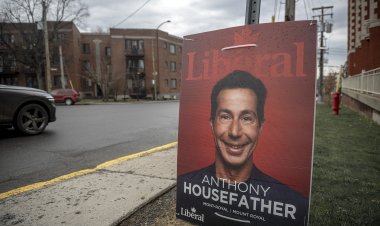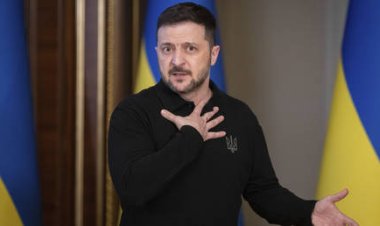Lindsey Graham Criticizes Idea of Pardoning Individuals Who Attacked Police: 'Wrong Signal'
The South Carolina senator indicated that there may come a time when the presidential pardon power requires some limits.

During an appearance on CNN's "State of the Union," the Republican senator from South Carolina stated: "When you pardon people who attack police officers, you're sending the wrong signal to the public at large. And it's not what you want to do to protect cops. But he has that power."
Trump’s mass pardon for those involved in the January 6 riot occurred at the beginning of his second term, encompassing individuals who violently confronted law enforcement while trying to disrupt the certification of the 2020 presidential election. Approximately 1,600 individuals received pardons or had their sentences commuted.
Some pardoned individuals showed defiance upon their release. Proud Boys leader Enrique Tarrio remarked, “The people who did this, they need to feel the heat, they need to be put behind bars.”
Following the commutation of his 18-year sentence, Oath Keepers founder Stewart Rhodes was seen at the Capitol complex Wednesday and was present behind Trump during a rally in Las Vegas on Saturday.
While acknowledging his loyalty to Trump, Graham criticized the blanket pardons. He broadened his critique of presidential pardons beyond Trump’s actions.
"I think pardoning people who beat up cops," Graham stated, "pardoning people who killed two FBI agents like Biden did, trying to raise bail for rioters in Minneapolis like Kamala Harris did, all send the wrong signal."
Graham alluded to President Joe Biden's recent commutation of the life sentence for Leonard Peltier, an 80-year-old Native American activist convicted in 1977 for the murder of two FBI agents. Peltier's supporters have long claimed he was politically prosecuted, a position echoed by musician-activist Steve Van Zandt, who released a song titled "Leonard Peltier" in 1988.
The constitutional basis for presidential pardon power is clear: "he shall have Power to grant Reprieves and Pardons for Offences against the United States, except in Cases of Impeachment." However, Graham suggested that Congress might consider imposing limits on this power should it be perceived as misused.
"I don't like it on either side," he commented. "And I think the public doesn't like it either. So if this continues, if this is the norm, there may be an effort to rein in the pardon power of the president as an institution."
Graham also acknowledged that Trump was open about his intentions to pardon the Jan. 6 rioters, whom Trump often referred to on the campaign trail as "hostages."
"Whether you like Trump or not, he said, this is what I'm going to do, and he did it," Graham remarked.
On the same day, Graham criticized Trump’s decision to withdraw protective details for two former Cabinet members, ex-Secretary of State Mike Pompeo and former national security adviser John Bolton, both of whom have had contentious relationships with Trump in recent years.
Like Trump, both Pompeo and Bolton are believed to have been targeted by Iran for assassination, purportedly in retaliation for the 2020 killing of Iranian military official Qassem Soleimani.
Graham expressed concern regarding the Iranian threat.
"Whether you like Bolton or anybody else," Graham told host Dana Bash, "we need to make sure that, if you serve in our government and you take out a foreign power at the request of the administration, that we do not leave you hanging."
Allen M Lee contributed to this report for TROIB News












